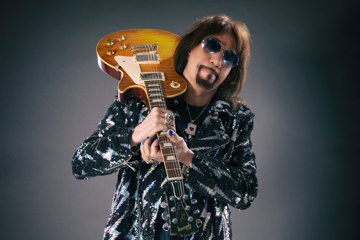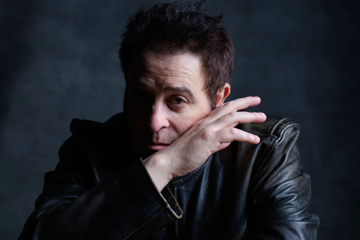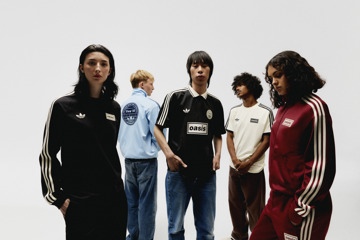Chicago Club Bans EDM Artists For Safety Reasons
EDM stands for 'Extremely Dangerous Music', right?
A historic music venue in Chicago — renowned as the birthplace of house music — has banned EDM artists from appearing on its stage for all current and future owners to ensure its survival under the terms of an agreement with the city.
The Congress Theater, in Logan Square, has hosted several A-list EDM artists in its time, including Skrillex, Rusko, Major Lazer and staunchly pro-cake-throwing DJ Steve Aoki.
However, after it was shut down following the loss of its liquor license in May last year in relation to a handful of EDM events, and the consequent barrage of opposition it was subjected to from neighbours over the inevitable ruckus of its EDM shows, the venue has entered into a deal with the city, signed on July 30, that will see the Congress become a permanently EDM-free zone — regardless of a change in ownership — from here on out.
The ban falls under a six-page plan of operation prepared for the city by the Congress Theater, which has been a fixture of the city's music landscape since the mid-1920s. The city rather broadly defines EDM as "music created by a DJ or multipled DJs primarily using specialised equipment and software instead of traditional instruments", which doesn't extend to live dance music gigs, but seems to nonetheless encompass a far wider range of genres than the namesake of the ban would indicate.
Don't miss a beat with our FREE daily newsletter
Under the terms of the agreement — to which venue owner Eddie Carranza and City of Chicago liquor commissioner Gregory Steadmen were signatories — the "licensee shall not allow any EDM shows/events at the premises", an ultimatum that applies to "the business address, the licensee, and to all officers, managers, partners, and direct or indirect owners of the licensed entity".
"The sale of the business to other person [sic] purchasing the stock or membershp units of the licensed entity does not void the conditions of this Plan of Operations," the document reads. "Any and all potential new owners of the licensed entity shall be subject to the same conditions set forth in this Plan of Operation."
However, despite assertions from the liquor commissioner that the stipulations are designed to address the community's "rising level of concern about these events and whether or not they're safe", the measures have not been without their detractors.
Alderman Joe Moreno said of the plan: "My position has always been that I think this is a little stronger than it needs to be. I think it's a blunt instrument but I do support it. Hopefully there will be a time when we won't need it."
"It's not the genre, it's the way the owner handles the genre," Moreno continued. "I don't blame the genre or the artists, it's the operator who has to be able to handle the crowd. Unfortunately, the Congress has a history of not being able to manage certain types of crowds.
"It's the same thing other genres have gone through … they blamed The Beatles."
The Congress is yet to re-obtain its liquor license despite the new restrictions being imposed; Carranza is yet to comment on the development.
Who needs specialised equipment? Watch this Aussie muso perfectly re-create EDM using just PVC pipes







